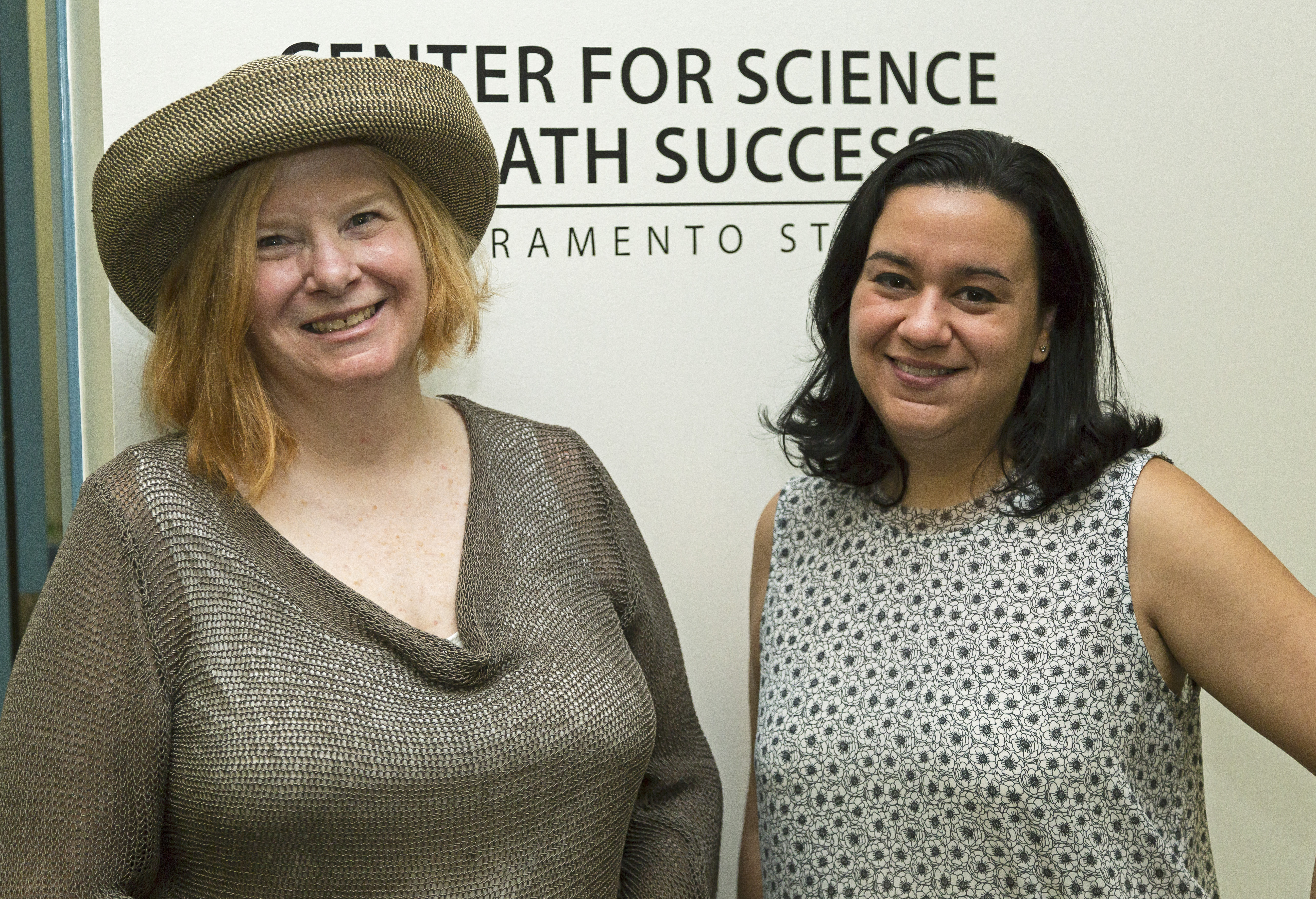 Mary McCarthy Hintz, left, and Semarhy Quinones-Soto are co-administrators of the NIH grant. (Sacramento State/Craig Koscho)
Mary McCarthy Hintz, left, and Semarhy Quinones-Soto are co-administrators of the NIH grant. (Sacramento State/Craig Koscho)More researchers will be entering the biomedical field through a $1.37 million National Institutes of Health grant received by Sacramento State to give students real experience in research projects.
The grant program, which will be launched this fall, targets undergraduates aiming for a doctorate in biomedical research. “They are going to be placed in research labs with faculty members, here at Sac State and at UC Davis – the medical center and the main campus,” says Semarhy Quinones-Soto, research coordinator for the Science Education Equity (SEE) Program and the Louis Stokes Alliance for Minority Participation. She is one of the grant administrators.
The five-year Research Initiative for Scientific Enhancement (RISE) grant will be used by the SEE to assist 10 students a year from underrepresented communities such as ethnic and cultural groups, the disabled, low-income families, and students from undereducated backgrounds – those who represent the first in their families to attend college.
“It basically serves many of the students that Sac State is known for serving,” says Mary McCarthy Hintz, director of SEE activities and the grant’s other administrator.
Student work could involve research projects in areas such as microbiology, organic chemistry, or neurological disorders.
The students will be paid for their work. “We’re giving them research experience so they can move on to their Ph.D.’s, but we’re also providing them with a source of income so they don’t have to go outside to support themselves and can concentrate on their academics and their experiences,” Quinones-Soto says.
Targeting this particular segment makes sense in another regard. Not only are the groups underrepresented in medical research, they’re also more likely to be hit with medical problems such as diabetes, heart disease, and cancer.
“In order to address and look into those issues, we need people from those communities to be the researchers,” McCarthy Hintz says.
SEE helps about 200 students who face social, economic, and educational barriers to attaining degrees in health professions, science research, and science teaching. But it’s just part of a larger family. The program is under the umbrella of the college’s Center for Science and Math Success, which also encompasses the Peer Assisted Learning program, Commit to Study, and the Learning Assistant program – together reaching out to students from all walks of life.
“Everybody in the college gets some sort of services, they are open to everyone, and we serve everyone better because of them,” McCarthy Hintz says.
A video on the SEE Program is available at https://youtu.be/235blkCrT_s. For more information about the program, visit csus.edu/nsm/see or call (916) 278-2790. – Craig Koscho
